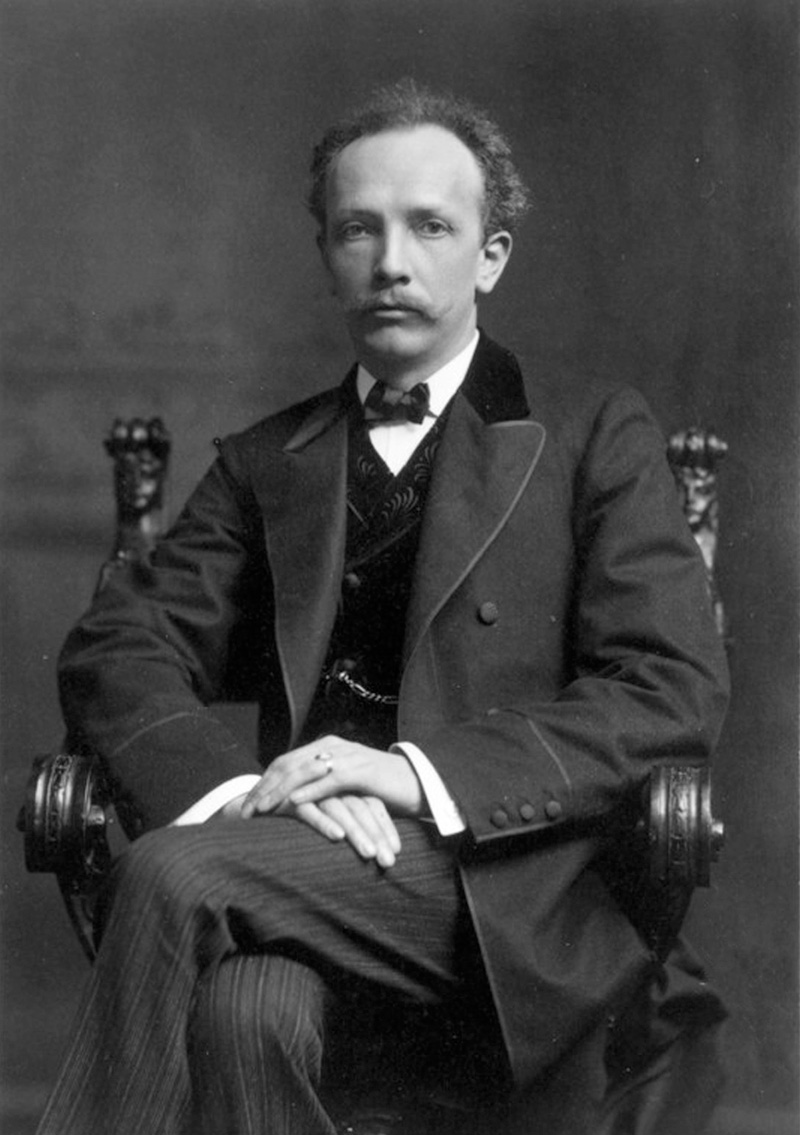Richard Strauss

Born: June 11, 1864, Munich
Died: September 8, 1949, Garmisch-Partenkirchen
Concerto No. 1 in E-flat Major for Horn and Orchestra, Op. 11
- Composed: 1882-1883
- Premiere: March 4, 1885 in Meiningen, conducted by Hans von Bülow with Gustav Leinhos as soloist.
- CSO Notable Performances:
- First: December 1915 at a "Popular Concert," Ernst Kunwald conducting, Gustav Albrecht, horn
- First CSO Subscription: March 1978, Carmon DeLeone conducting, Barry Tuckwell, horn
- Most Recent: November 1992, Jesús López Cobos conducting, Hermann Baumann, horn
- Instrumentation: solo horn, 2 flutes, 2 oboes, 2 clarinets, 2 bassoons, 2 horns, 2 trumpets, timpani, strings
- Duration: approx. 15 minutes
Franz Strauss, Richard’s father, was one of the outstanding instrumentalists of his day. For over 40 years as principal horn he was a chief adornment of the Munich Court Orchestra, a post he held until the age of 69; he was especially renowned for the power and artistry of his solos in Mozart’s concertos, Beethoven’s symphonies and Wagner’s operas. The eminent pianist and conductor Hans von Bülow dubbed him “the Joachim of the horn” (Brahms wrote his Violin Concerto for Joseph Joachim), and Wagner, whose personality and music Franz detested, grudgingly admitted, “Strauss is an unbearable fellow, but when he plays his horn, one cannot be cross with him.” Franz was also a composer, mainly of horn music, as well as the conductor of an amateur orchestra and a capable player of guitar and viola.
The sound of Franz’s horn playing was a fixture in the Strauss household: it is said that Richard as a baby would coo and smile when he heard the horn, but cry at the sound of a violin. It is hardly surprising, then, that the boy wrote for the horn when his talent began to blossom. Two such early works are a song called Alphorn with horn obbligato and the Introduction, Theme and Variations for horn and piano, both with writing difficult enough to give the young composer’s virtuoso father pause. Late in 1882, while he was a student at Munich University, Richard began a concerto for the horn and completed it early the next year. (His Second Horn Concerto came 60 years later, in 1942.) Franz played through the work and found it filled with such difficulties that he refused to perform it in public, though he occasionally tackled the piece for family concerts. The public premiere was given in 1885 by conductor Hans von Bülow and the principal horn of his Meiningen Orchestra, Gustav Leinhos, who, Strauss assured his father, was a player of “colossal sureness,” a mandatory virtue for any performer of this challenging concerto. The composer could not attend, but his uncle, Carl Hörburger, reported that the performance was presented and received “obviously with great commitment and interest.” The First Horn Concerto was soon taken up by other performers and remains the earliest of Strauss’ works in the orchestral repertory.
Father Franz saw that Richard was trained strictly in the classical style of Mozart, Beethoven and Mendelssohn, with Wagner and Liszt treated more like anathema than mere composers. During the time of the First Horn Concerto, Richard shared his father’s reactionary tastes (this changed radically after 1885, when the young musician left home) and the piece is in Strauss’ most untroubled classical vein. The concerto opens with a brilliant fanfare-flourish from the soloist that becomes the main theme of the first movement. A more lyrical (though, for the soloist, no less demanding) section serves as a complement to the vigorous opening theme. A spirited orchestral tutti, gradually softening, leads without pause to the Andante, a sad, sweet song in three parts, the central section of which is marked by agitated, repeated-note figures in the accompaniment. The finale is a bounding Rondo whose theme is a transformation of the principal melody of the opening movement.
—Dr. Richard E. Rodda